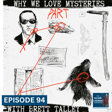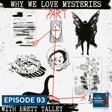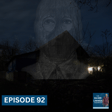
Bonus - The Mystery of Dyatlov Pass with Brett Talley
In 2021, The Prosecutors Podcast did a five-part series on Dyatlov Pass. Brett Talley, the co-host of that podcast, joins to revisit the series, talk updates and discuss our theories on what happened to the nine hikers who disappeared in the Ural Mountains. Was it an avalanche? A Soviet military experiment? Aliens?
To listen to The Prosecutors Podcast series on Dyatlov Pass, The Dyatlov Pass Incident - Baby It's Cold Outside, click here: https://bit.ly/4eu74hS
To buy The Prosecutors Podcast Dyatlov Pass t-shirt, designed by Hannah Hill, check out The Prosecutors Podcast store: https://www.bonfire.com/house-6-1/?productType=bacf6cd6-b53d-469c-ab96-02afe5b15f71
Check out the Silver Linings Handbook website at:
https://silverliningshandbook.com/
Check out our Patreon to support the show at:
https://ww.patreon.com/thesilverliningshandbook
Join our Facebook Group at:
https://www.facebook.com/groups/1361159947820623
Visit the Silver Linings Handbook store to support the podcast at:
https://www.bonfire.com/store/the-silver-linings-handbook-podcast-store/



















